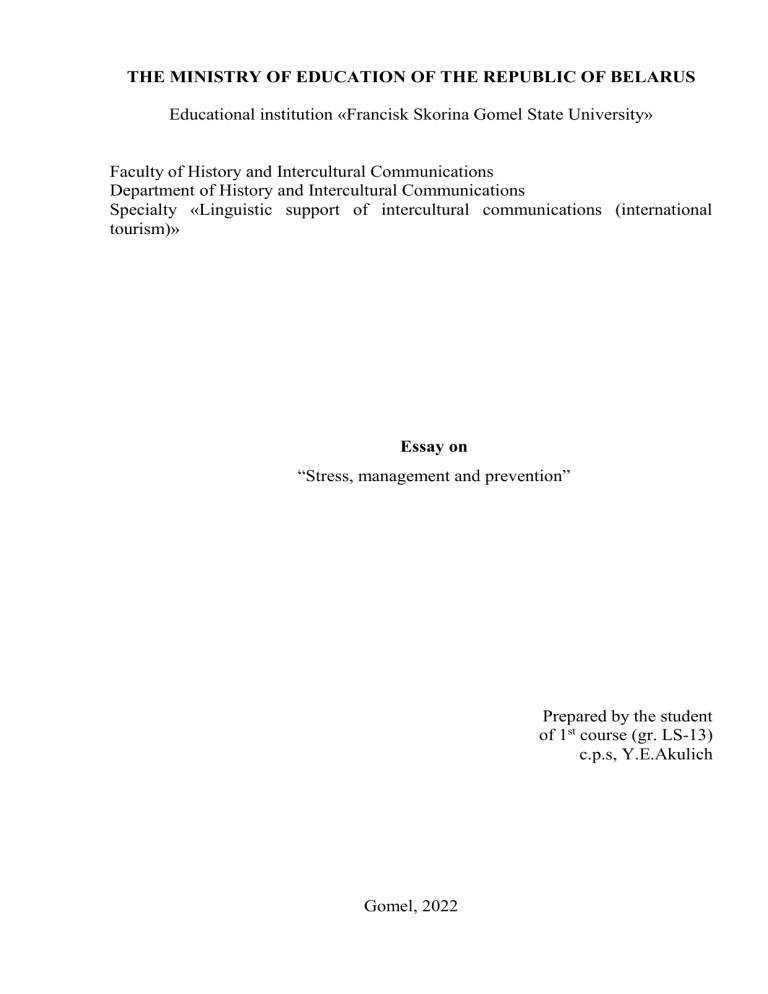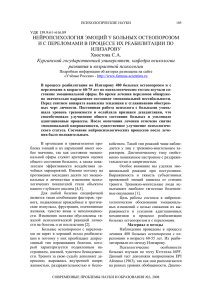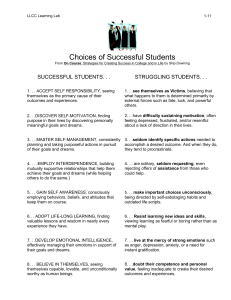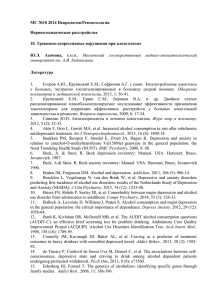
THE MINISTRY OF EDUCATION OF THE REPUBLIC OF BELARUS Educational institution «Francisk Skorina Gomel State University» Faculty of History and Intercultural Communications Department of History and Intercultural Communications Specialty «Linguistic support of intercultural communications (international tourism)» Essay on “Stress, management and prevention” Prepared by the student of 1st course (gr. LS-13) c.p.s, Y.E.Akulich Gomel, 2022 Stress, management and prevention Stress is a disease of the century. Life has never been faster and jobs have never been more stressful than they are today. People have to perform more and more work under difficult and more stressful conditions. Many people suffer from stress and the illnesses it can cause, and more people are recognizing that stress is a natural reaction of a person’s body to pressure, either from the outside world or from the inner world of emotions and physical organs. We can’t avoid stress. And we can’t help ourselves, or others, until we know more about it. Not all stress is bad and perhaps if we understood it better we could make the most of it. Stress can affect all aspects of your life, including your emotions, behaviors, thinking ability, and physical health. No part of the body is immune. But, because people handle stress differently, symptoms of stress can vary. Symptoms can be vague and may be the same as those caused by medical conditions. So it is important to discuss them with your doctor. You may experience any of the following symptoms of stress. Some frightening facts and figures related to stress According to the World Health Organization, more than 264 million people suffer from chronic stress and depression all over the world. Furthermore, this chronic stress is a leading cause of suicidal tendencies in people of all ages, especially youngsters. As stated by the Pew Research Center, stress and anxiety are showing a sharp rise in American teenagers. More than 70 percent of teenagers in the US feel that stress, anxiety, and depression are common and major problems in their peer groups. In addition, 61 percent of teens in the US admit that they feel a lot of stress and pressure to score good academic grades. I would like to give some recommendations how to cope with stress and be healthy. First of all, Do not bury your emotions. Share your feelings. Unresolved emotions can resurface as nightmares or physical illness. Talk to a trusted friend. Spend time with positive people who enhance your life. If you find that a relationship makes you stressed, end it. If that isn't possible, remember that you may not be in control their behavior, but you are in control of how you react to it. Give compliments freely and smile often. You'll be amazed how the mood around you will change and how in turn you will feel better. Meditation can be an excellent way to control your body's response to stress. Don't forget that yoga and aromatherapy are helpful in combating stress. Scented candles, soft music and a hot bath are great ways to relax after a hard day. Identify the sources of stress in your life. Learn how to say “no” – Know your limits and stick to them. Whether in your personal or professional life, refuse to accept added responsibilities. Avoid people who stress you out – If someone consistently causes stress in your life, limit the amount of time you spend with that person or end the relationship entirely. Focus on the positive. When stress is getting you down, take a moment to reflect on all the things you appreciate in your life, including your own positive qualities and gifts. This simple strategy can help you keep things in perspective. Train yourself to minimize negative thinking and prioritize tasks so you aren't stressing about the small stuff. Remember that even smiling, whether you mean it or not, will help relieve stress. Keep your sense of humor. This includes the ability to laugh at yourself. The act of laughing helps your body fight stress in a number of ways. Daunting deadlines, unrealistic targets, and making ends meet at work are common contributors to stress in professionals all across the world. According to research by Everest College, 83 percent of employees working in the US suffer from work stress every day. Plus, 80 percent of the workers in the US experience stress at work due to ineffective workplace communication. As stated above, a lot of students start to feel stressed because of homework, their course, or schoolwork. In addition to these, there is constant pressure on them from the side of teachers and parents to perform exceptionally well. Such a burden of expectations, not letting students choose their passions, and painting failures in a bad light can make students anxious, afraid of not being able to meet the expectations, and horribly stressed. Improving time management skills Inefficient time management is a cause of stress and anxiety in many people. People tend to feel stressed when they are not able to meet deadlines or are not able to maintain a healthy work-life balance. But by honing time management skills, an individual can make the most of his day and complete all the tasks in an efficient manner. It usually happens that people pick up on stress when they have whiled away their precious time and try to finish the task in the last leg of the stipulated time. However, successful time management enables people to finish before time and to have sufficient time to maintain a healthy balance between professional and personal life. Also, for students who often wonder how to write an essay fast without stressing, time management is the key. Keeping surroundings green People can deal with their stress a lot better if they surround themselves with plants. Hence, a walk to a lush green garden or keeping an indoor plant on the office desk or study table can be a great way to bust stress. This claim is backed by enough pieces of research that have tried to explore the correlation between plants and reduction in stress. It is interesting to note that as per a study featured in the Journal of Physiological Anthropology, keeping indoor plants can reduce physiological and psychological stress and anxiety in a significant way. Hence, this shall serve as one of the most inexpensive, easy, and of course, eco-friendly ways of dealing with stress. The cognitive development of a child is as essential as his academic development. If every little mind keeps getting exposed to high levels of academic stress right from childhood, his emotional and mental well-being is likely to suffer immensely. This will one day make the world turn into a community of mentally and emotionally troubled beings who will also be indifferent towards each other. They will not only suffer because of their own emotional and mental instability but they’ll also suffer because of social disconnection. To prevent such dreary things from happening, it is crucial for educational institutions to start paying more attention to the emotional and mental development of the children during their formative years. This will help little kids turn into adults who are not only professionally successful but also mentally and emotionally strong. Stress is an integral part of life. It is not possible to get rid of it completely but if one keeps his stress levels managed, he can prevent stress from having adverse impacts on his health and well-being. Along with this, parents and teachers should direct their efforts to help children with stress management. This will help them ensure that academic stress doesn’t get to inhibit the emotional and mental development of young minds.











